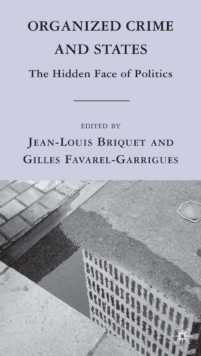
The Bureaucratization of the World in the Neoliberal Era : An International and Comparative Perspective PDF
by B. Hibou
Part of the The Sciences Po Series in International Relations and Political Economy series
Description
At the point where Max Weber meets Michel Foucault, Beatrice Hibou analyzes the political dynamics underlying a set of norms, rules, and procedures that form contemporary beurocracy.
Neoliberal bureaucracy is a vector of discipline and control: even more, it produces social and political indifference.
Under the pretext of depoliticization, this trend cannot hide the exercise of normalizing and excluding power.
Bureaucratization is not something external to society: it unfolds through the very same actors who are its target and who, consciously or not, play an essential role in this process.
Operating as it does through individuals, bureaucratization does not come 'from above': it is a much wider process of 'bureaucratic participation', a response to the need to voice material and vested interests and give answers to legitimate demands, as well as expressing the quest for efficiency, but it also reflects day-to-day conflicts and negotiations between actors.
In this way, bureaucratic participation is constructed through power relations, and paradoxically relies on informalities that alone make the neoliberal art of government possible.
Information
-
Download - Immediately Available
- Format:PDF
- Pages:264 pages
- Publisher:Palgrave Macmillan
- Publication Date:06/05/2015
- Category:
- ISBN:9781137495280
Other Formats
- Hardback from £44.99
- Paperback / softback from £44.99
Information
-
Download - Immediately Available
- Format:PDF
- Pages:264 pages
- Publisher:Palgrave Macmillan
- Publication Date:06/05/2015
- Category:
- ISBN:9781137495280










